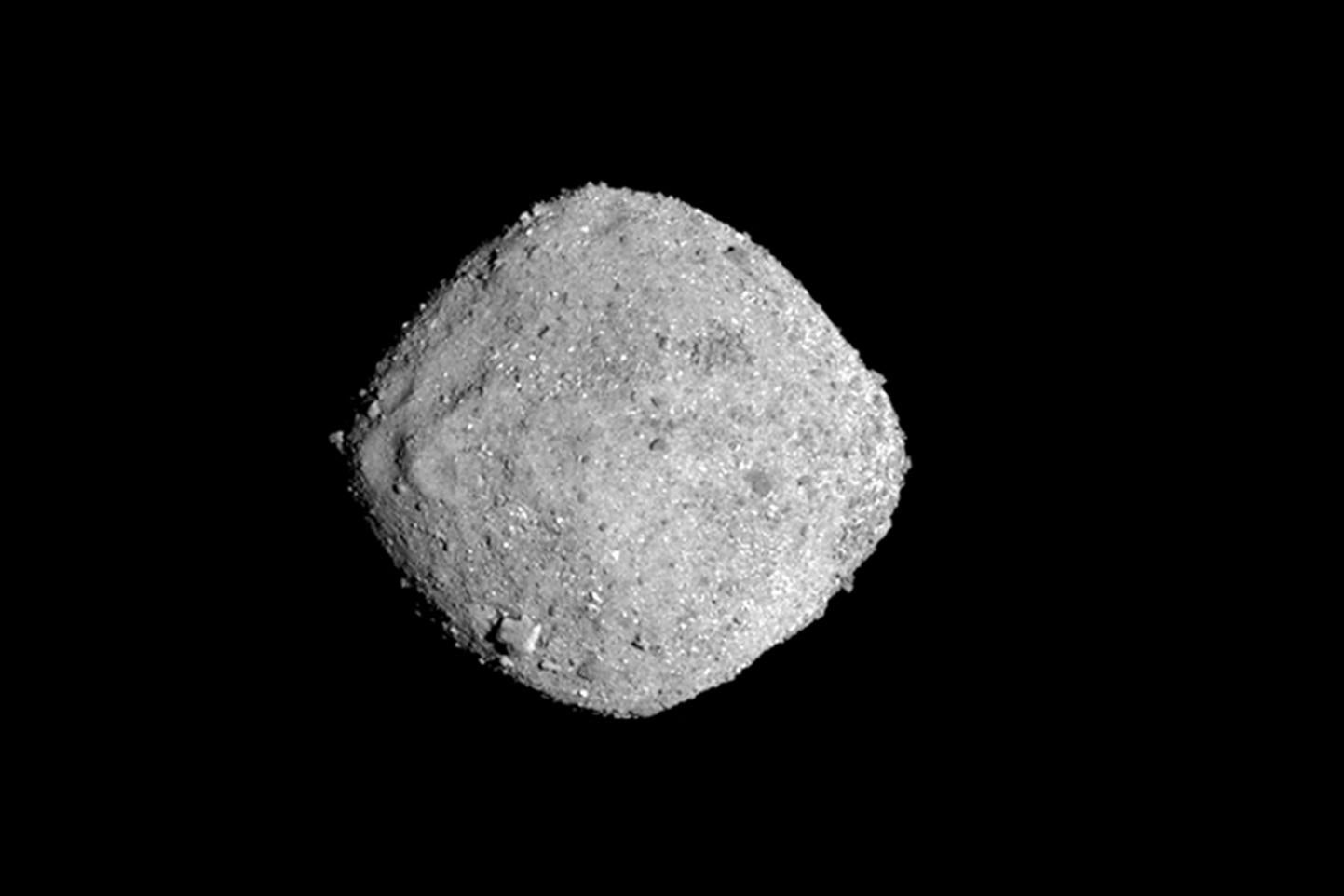Nasa spacecraft finds water in search for origins of life on asteroid
OSIRIS-REx craft only arrived at asteroid Bennu in recent days

A Nasa spacecraft that just arrived on an asteroid has already made its first big discovery: ingredients for water.
Scientists hope that the OSIRIS-REx spacecraft will shed light on the mysteries of Bennu, an asteroid the size of a skyscraper that could hold clues to the origins of life on Earth.
The craft only arrived at the asteroid in recent days but the discovery of water is a major breakthrough that scientists hope can be matched by more discoveries in the future.
It was found when OSIRIS-REx flew close to the asteroid and picked up traces of hydrogen and oxygen molecules in its rocky surface. Those make up part of the recipe for water – itself a key ingredient in life itself.
The probe, on a mission to return samples from the asteroid to Earth for study, was launched in 2016. Bennu, roughly a third of a mile wide (500 meters), orbits the sun at roughly the same distance as Earth. There is concern among scientists about the possibility of Bennu impacting Earth late in the 22nd century.
"We have found the water-rich minerals from the early solar system, which is exactly the kind of sample we were going out there to find and ultimately bring back to Earth," University of Arizona planetary scientist Dante Lauretta, the OSIRIS-REx mission's principal investigator, said in a telephone interview.
Asteroids are among the leftover debris from the solar system's formation some 4.5 billion years ago. Scientists believe asteroids and comets crashing into early Earth may have delivered organic compounds and water that seeded the planet for life, and atomic-level analysis of samples from Bennu could provide key evidence to support that hypothesis.
"When samples of this material are returned by the mission to Earth in 2023, scientists will receive a treasure trove of new information about the history and evolution of our solar system," Amy Simon, a scientist at NASA's Goddard Space Flight Center in Maryland, said in a statement.
"We're really trying to understand the role that these carbon-rich asteroids played in delivering water to the early Earth and making it habitable," Lauretta added.
OSIRIS-REx will pass later this month just 1.2 miles (1.9 km) from Bennu, entering the asteroid's gravitational pull and analyzing its terrain. From there, the spacecraft will begin to gradually tighten its orbit around the asteroid, spiraling to within just 6 feet (2 meters) of its surface so its robot arm can snatch a sample of Bennu by July 2020.
The spacecraft will later fly back to Earth, jettisoning a capsule bearing the asteroid specimen for a parachute descent in the Utah desert in September 2023.
Additional reporting by agencies
Join our commenting forum
Join thought-provoking conversations, follow other Independent readers and see their replies
Comments
Bookmark popover
Removed from bookmarks